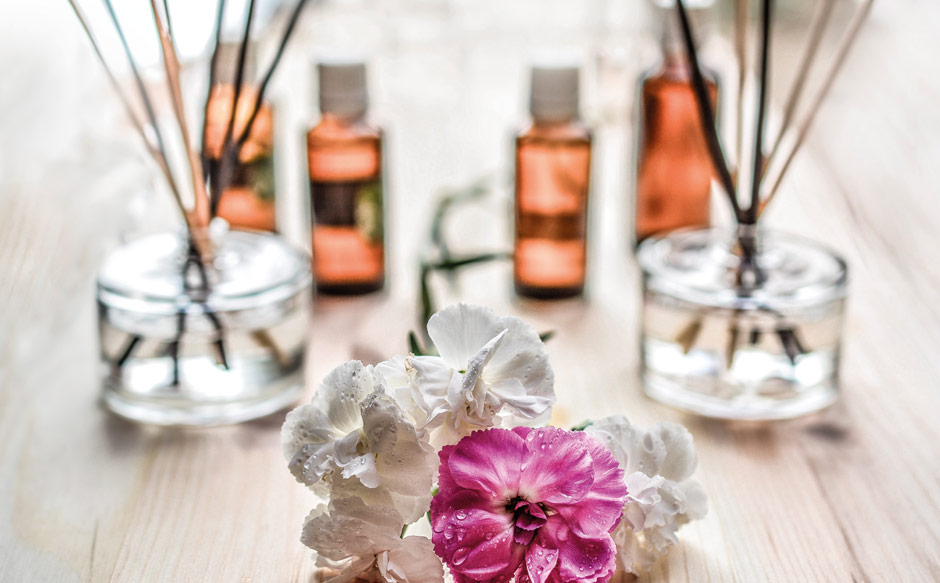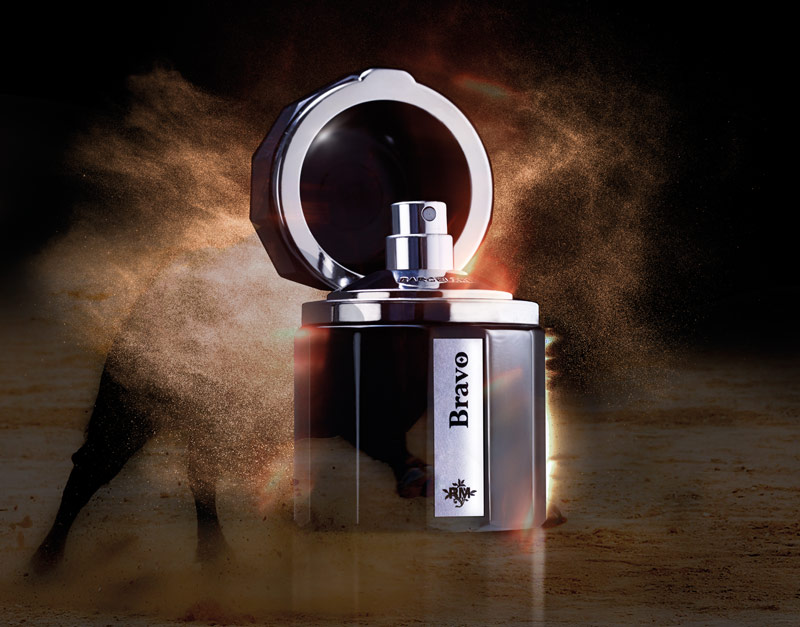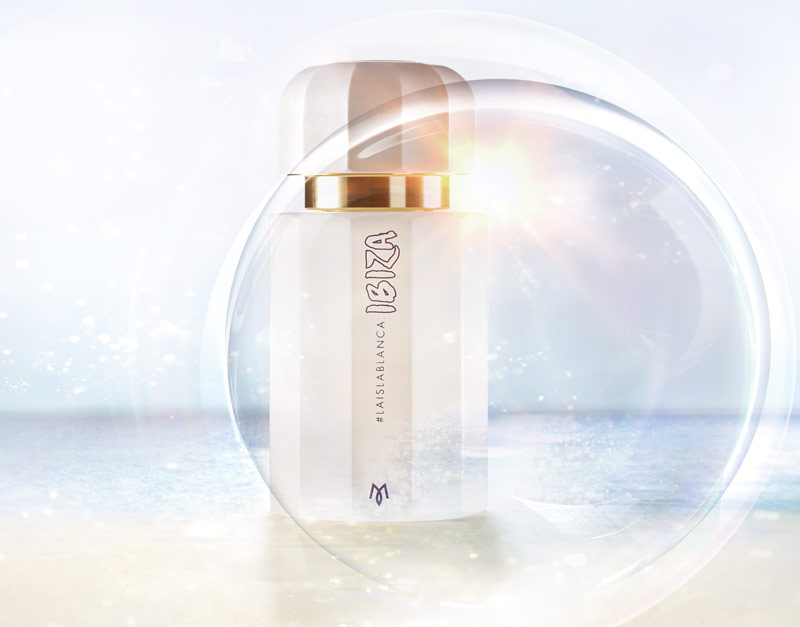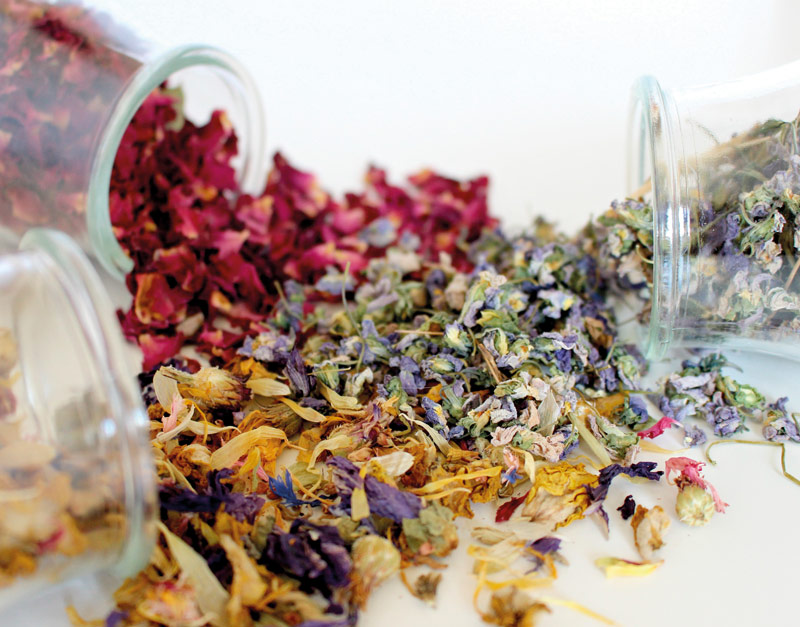Spain is a land of perfumers, with big names and families who gather at the Academy of Perfume Foundation. We talk with master perfumer Ramon Monegal, a creator of splendidly unique fragrances.
Using perfume was a ritual for the ancient Egyptians, Mesopotamians and Greeks, who used flowers, aromatic plants and resins to render cult to the body and the gods. The Romans spread the custom while the Arabs introduced new fragrances which also reached the Iberian Peninsula. It was in the Middle Ages, however, that the Crusaders brought back the first perfumery techniques from the East. Later, in the early 18th century, Jean-Antoine Farina created the first eau de Cologne (in the German city of Köln), a milestone marking the birth of modern perfumery.
France and Italy are the foremost European countries linked to perfume-making, but Spain stands close behind them. This is confirmed by the data of Stanpa, the National Perfumery and Cosmetics Association. What’s more, Spain is the fifth leading European market for perfumery and cosmetic products, with a per capita consumption above the European average. And our country is the second-leading perfume exporter worldwide, following France and ahead of Germany and the United States. We also export citrus essences of fundamental importance in perfumery, such as those of grapefruit, lemon, and orange.
Created in 2017, the Academy of Perfume Foundation is linked to Stanpa and seeks to spread the knowledge of fragrances from a cultural perspective. It is the foremost exponent of an activity that stands halfway between craftsmanship and industry, with an unquestionable social and economic dimension. It is the only European institution of its kind with academicians, who are professionals whose career and passion have led to their election and the assignment of a distinctive seat, as in the case of Carlos Benaim (Pennyroyal Chair), Elisabeth Vidal (Bergamot Chair) and Rodrigo Flores-Roux (Incense Chair), among many other prestigious names.
Olfactory image
We talk with master perfumer Ramon Monegal, who holds the Iris of Florence seat at the Academy. Ramon developed the concept of the olfactory image –“the image which we emit but which our sense of smell cannot perceive, so we build it with perfume”. This is because a perfume above all communicates: “it announces us and speaks of us when we are not present”.
He is convinced that perfume is not merely a question of aesthetics: “Fashion has sought to turn it into an accessory and this is a manifest error. Perfume is a century-old tradition that identifies us. You need to have a knowledge of the ingredients that go into it in order to know what you’re communicating”. For example, “A flower has a smell to seduce the insects that pollinate it. So when I add a flower to a perfume, I do it for the same reason. A floral perfume is a seductive fragrance... not a woman’s scent, which is another of fashion’s crass errors. Fragrance has no gender”. Flowers seduce, woods give assurance, and roots provide balance. The values of ingredients are their contribution to perfume, and Monegal, bases himself on this principle to build a fragrance’s olfactory image. This could appear to be easy but very few know how to do it. “No education exists in this respect. We recognize our mother by our sense of smell but society teaches us to associate smells with food”.
Ramon studied architecture but with the passing of time he came to devote himself to his family’s perfumery business, the Myrurgia group, absorbed by Puig in the year 2000. “My teacher, the perfumer Artur Jordi Pey, convinced me that I could be just as creative making perfumes as designing buildings. Even so, I build perfumes architecturally”. Just like him, most perfumers received their training within families devoted to this business, the same as happens with wine or olive oil. Breaking with clichés, Ramon says that to be a good perfumer, a good nose is not indispensable. “What’s indispensable is imagination, because we invent scents and it’s necessary to imagine them. Then we have proportions and good taste, which are a matter of training. Technical aspects can be learned, and olfactory memory is acquired”.
For humans it is essential to associate a scent with an image. Monegal has worked with neurologists to teach patients the value of specific scents and to use their properties. “A smell can’t cure you but if you associate a smell with a sensation or an emotion and you’re aware of what it means, your mind starts working. A smell can help to calm anxiety.” He has also collaborated with chefs, pastry cooks and chocolate makers because a close relation exists between perfume and cuisine. “I once asked my teacher how to distinguish a good perfume from a bad one, and he answered: ‘A good perfume can be eaten’. Over time I’ve come to understand this: well-balanced perfumes, with a more natural appearance, can be eaten. I’ve mixed them with chocolate, pastries and cocktails, and I’ve eaten them”.
Ramon was trained as a laboratory perfumer, in aseptic places with lots of bottles, but with the passing of time he became a naturalist, “which doesn’t mean I work only with natural scents, but my reference is nature”. What’s more, he left the laboratory to attend to customers in his Barcelona workshop store, convinced that “the industry has been spending billions on advertising for over a century, but now customers know a lot less than before”.
Ramon Monegal speaks out for the Academy’s educational activities because “a creation will never be appreciated if all the agents between the customer and myself have not been duly educated”. He goes on to say that he is enjoying a very gratifying period in his career and is associating with artists “because perfume becomes an art if it is created with total freedom of the mind, with formulas that are not conditioned by costs or commercial filters, recovering their artisanal origin”.
Scentings and olfactory experiences
The Academy of Perfume offers a variety of workshops, conferences and olfactory experiences for different publics with a view to spreading the knowledge of the world of fragrances. For the perfume industry, for example, it holds training workshops for marketing, communication and sales teams. For groups from any sector, it holds experience workshops that foster communication and teamwork in connection with perfume creation. Lastly, for groups of private persons, it holds workshops and scenting sessions to promote the knowledge, history, techniques and olfactory families of perfume.










